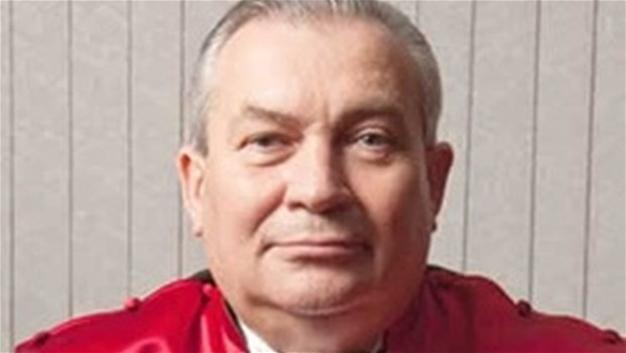Arrested Turkish UN judge files petition to Constitutional Court for diplomatic immunity
Sevil Erkuş - ANKARA

Arrested judge Aydın Sefa Akay, who also serves as a United Nations judge, has filed an appeal for his diplomatic immunity following the U.N. Mechanism for International Criminal Tribunals’ (MICT) rejection of Turkey’s response to the U.N. Secretary-General, the MICT has told the Hürriyet Daily News.
“In providing full diplomatic immunity, the Security Council makes no exception with respect to nationals of a state or specifies that they should receive only functional immunity, as is claimed by Turkey,” the MICT said in a written reply to the Hürriyet Daily News, noting that it does not accept Turkey’s argument of functional immunity for Akay.
“We confirm that Turkey’s Constitutional Court has been petitioned in relation to this matter,” the MICT said, referring to Akay’s individual application.
On Oct. 27, the MICT asked Turkey to release Akay and cease legal proceedings against him. He was arrested in September as part of an investigation into the July 15 failed military coup attempt.
In its reply to the U.N. Secretariat on Nov. 10, Turkey’s Permanent Representative to U.N. claimed that Akay merely has “functional immunity” and therefore could only benefit from immunity for charges regarding his assignment. It argued that this impunity is invalid for charges committed in his national country.
In response, the MICT dismissed Turkey’s appeal. “With all due respect to the position taken by Turkey, that position is contrary to the plain wording of the Statute of the Mechanism adopted by the United Nations Security Council under Chapter VII of the United Nations Charter, which clearly provides for full diplomatic immunity for Judges of the Mechanism when engaged on the business of the Mechanism. In providing for full diplomatic immunity, the Security Council made no exception with respect to nationals of a State or otherwise specified that they should receive only functional immunity, as is claimed by Turkey,” it told the Daily News.
The court said that following the long tradition of according full diplomatic immunity to international judges, the MICT made clear in its statute that its judges - who are expected to work remotely and typically in their state of nationality, unless the president deems it necessary to call them to the seat of the mechanism - benefit from full diplomatic immunity.
MICT calls on Turkey to fulfil obligations
Recalling that the U.N. Legal Counsel, on behalf of the U.N. Secretary-General, formally asserted diplomatic immunity for Akay on Oct. 25, 2016, the MICT asked Turkey to fulfil “obligations to respect the Statute of the Mechanism given that Statute’s adoption is pursuant to Chapter VII.”
“It is incumbent upon Turkey to recognize Judge Akay’s diplomatic immunity, to immediately release him from detention, and to cease all legal proceedings against him, as such proceedings commenced when Judge Akay was already assigned to a case and was carrying out his judicial functions for the Mechanism—and is thus entitled to diplomatic immunity,” the MICT said.
The only formal communication received to date from Turkey in relation to this matter was directed to the U.N. Secretariat and it is up to the secretariat to determine an appropriate response to that communication, it also noted.
MICT President Theodor Meron has yet to receive any response to his own request to Turkey, sent on Oct. 17, to be permitted to visit Akay for purposes of “discussing his situation confidentially and to ascertain his conditions of detention,” the court stated.
Meron to address UN Security Council in December
Elaborating on further steps that the MICT will take, it said that if the matter is not resolved by the time Meron appears before the U.N. Security Council in December, he intends to address the matter in his formal remarks to the council.
“It is noted, moreover, that further steps are being taken domestically, including through the filing of a petition before the Constitutional Court of Turkey,” it stated.
The leading U.N. war crimes court called on Turkey to free Akay, saying his detention has paralyzed an appeals hearing in Rwanda.
 Arrested judge Aydın Sefa Akay, who also serves as a United Nations judge, has filed an appeal for his diplomatic immunity following the U.N. Mechanism for International Criminal Tribunals’ (MICT) rejection of Turkey’s response to the U.N. Secretary-General, the MICT has told the Hürriyet Daily News.
Arrested judge Aydın Sefa Akay, who also serves as a United Nations judge, has filed an appeal for his diplomatic immunity following the U.N. Mechanism for International Criminal Tribunals’ (MICT) rejection of Turkey’s response to the U.N. Secretary-General, the MICT has told the Hürriyet Daily News.